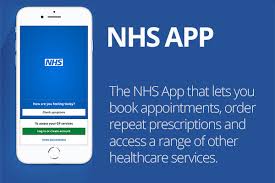Sorry, we're closed
See our other Locations
Over Healthcare - Pharmacy | Telephone: 01954 233457 | pharmacy.fw840@nhs.net

Practice Closure for staff training Respiratory syncytial virus (RSV) Flu vaccines 2024 Surgery closure Wed 18th July, 2-6pm Clinical Pharmacist Did Not Attend appointment data for April Easter Opening times for Surgery & Pharmacy Wednesday 27th March – Afternoon Surgery closure Please give us feedback Be Prepared
Coronavirus – Latest information as of 10th March 2020
outbreaks of new infectious diseases. The NHS has put in place measures to ensure
the safety of all patients and NHS staff while also ensuring services are available to
the public as normal.
The risk to the general public is moderate.
Category 1: Travellers should self-isolate, even if asymptomatic, and use the 111 online coronavirus service to find out what to do next. Go home or to your destination and then self isolate.
The guidance for Italy applies to travellers who returned from the country on or after 9 March 2020.
Category 2: Travellers do not need to undertake any special measures, but if they develop symptoms they should self-isolate and call NHS 111.
| Category 1 countries/areas | Category 2 countries/areas |
|---|---|
| Wuhan city and Hubei Province (China, see map) | Cambodia |
| Iran | China* |
| Daegu or Cheongdo (Republic of Korea, see map) | Hong Kong |
| Italy** | Japan |
| Laos | |
| Macau | |
| Malaysia | |
| Myanmar | |
| Republic of Korea* | |
| Singapore | |
| Taiwan | |
| Thailand | |
| Vietnam |
*Except areas of the country specifically referred to in Category 1.
**(i)Travellers who returned from areas of Northern Italy that were under containment measures (see map) between 19 February and 8 March 2020 should self-isolate for 14 days. If they develop symptoms they should contact NHS111. (ii)Travellers who returned from the rest of Italy before 9 March 2020 do not need to undertake any special measures, but if they develop symptoms they should self-isolate and call NHS 111.
Do not go to a GP surgery, community pharmacy or hospital. Call 111, stay
indoors and avoid close contact with other people.
Further information is available on nhs.uk.
Like the common cold, coronavirus infection usually occurs through close contact
with a person with novel coronavirus via cough and sneezes or hand contact. A
person can also be infected by touching contaminated surfaces if they do not wash
their hands.
The risk of being in close contact with a person with coronavirus or contaminated
surfaces is very low at the current time, as members of the public who have visited
Wuhan or Hubei province, China are currently in isolation.
Testing of suspected coronavirus cases is carried out in line with strict regulations.
This means that suspected cases are kept in isolation, away from public areas of the
hospital and returned home also in isolation. Any equipment that come into contact
with suspected cases are thoroughly cleaned as appropriate. Specific guidance has
also been shared with NHS staff to help safeguard them and others. Patients can be
reassured that their safety is a top priority, and are encouraged to attend all
appointments as usual.
Everyone is being reminded to follow Public Health England advice to:
• Always carry tissues with you and use them to catch your cough or sneeze.
Then bin the tissue, and wash your hands, or use a sanitiser gel.
• Wash your hands often with soap and water, especially after using public
transport. Use a sanitiser gel if soap and water are not available.
• Avoid touching your eyes, nose and mouth with unwashed hands.
• Avoid close contact with people who are unwell.
You can find the latest information and advice from Public Health England at Further
information is available on nhs.uk.
Opening Times
- Monday
08:00am to 01:00pm
02:00pm to 06:00pm
Pharmacy: 08:30 - 13:00 & 14:00 - 18:00 - Tuesday
08:00am to 01:00pm
02:00pm to 06:00pm
Pharmacy: 08:30 - 13:00 & 14:00 - 18:00 - Wednesday
08:00am to 01:00pm
02:00pm to 06:00pm
Pharmacy: 08:30 - 13:00 & 14:00 - 18:00 - Thursday
08:00am to 01:00pm
02:00pm to 06:00pm
Pharmacy: 08:30 - 13:00 & 14:00 - 18:00 - Friday
08:00am to 01:00pm
02:00pm to 06:00pm
Pharmacy: 08:30 - 13:00 & 14:00 - 18:00 - Saturday
CLOSED - Sunday
CLOSED





